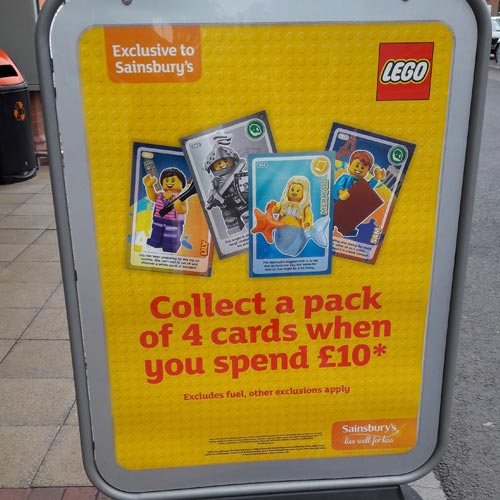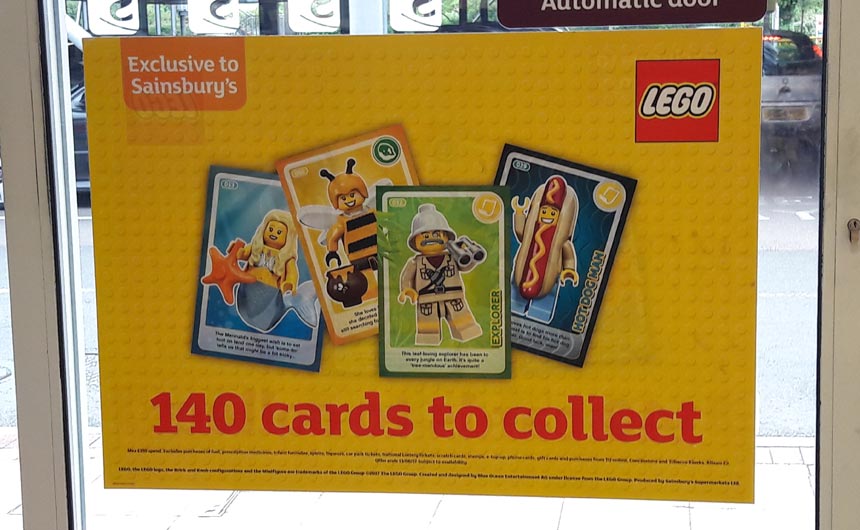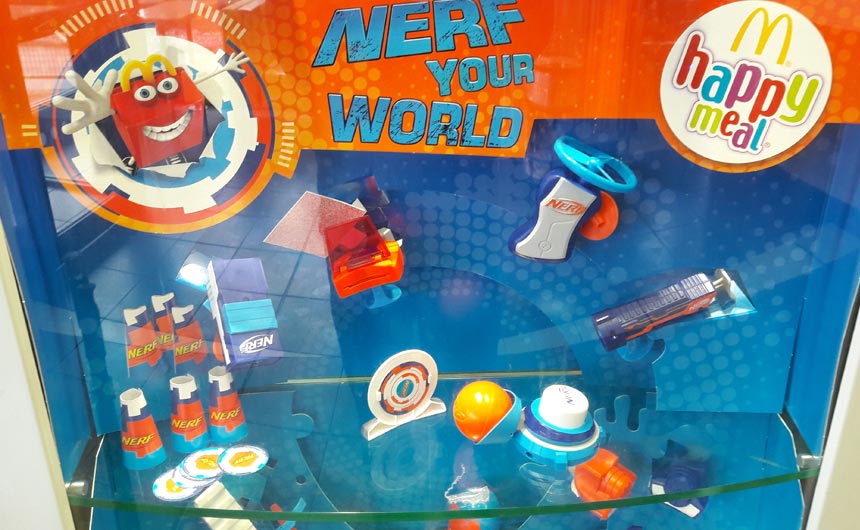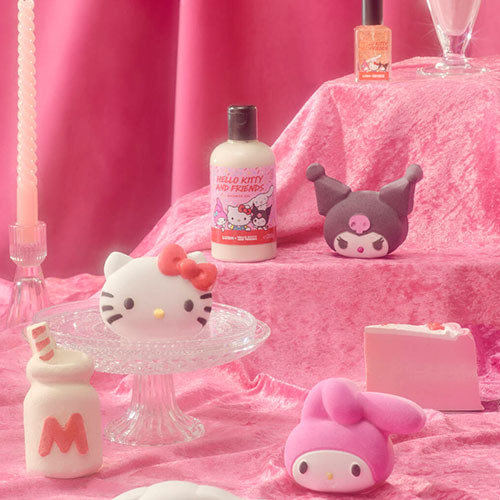Start Licensing’s Ian Downes checks out two new licensing-led retail loyalty promotions.
It seems rather like London buses, you wait ages for a licensing-led retail loyalty programme then two come along together.
As mentioned recently I spotted the East of England Co-Op using Gordon Ramsey cookware at the centre of a loyalty scheme – at the time I remarked that I hadn’t seen this kind of licensing activity in the UK for a while.
This week, as reported on LicensingSource, Sainsbury’s launched a loyalty programme using the LEGO brand. The scheme uses a LEGO trading card collection to drive in-store spend. Customers get four cards free with every £10 spent in store. They can buy a collector album for £2 to house the collection.

The programme seems to have been developed by a German company – this suggests it has been used in other markets before. I guess it is tried and tested. Retail loyalty schemes have remained popular in Europe, but UK retailers seemed to have fallen out of love with this kind of programme until recently.
The programme is well communicated in-store and is prominently displayed. LEGO is an omnipresent brand that has high trust levels and is a consistent performer, making it a strong candidate for this kind of scheme. For a rights holder, it can be a lucrative activity and, of course, creates a lot of brand noise. The motivation for Sainsbury’s is of course to engender loyalty, encourage repeat visits and perhaps upping average spend.
I think it also allows it to offer consumers something different. The promotion is billed as an ‘exclusive’ one – in today’s grocery retail market which is largely price driven it is becoming increasingly difficult for retailers to have a point of difference. A promotion like this creates an immediate point of difference and is slap bang in the ‘sweet spot’ of family marketing. I imagine we may see other retailers getting back on the licensing loyalty programme bus.

In a wider sense I think this promotion is good news for ‘Licensing PLC’. Sainsbury’s electing to use a licensed brand such as LEGO is a real endorsement for licensing. Activities like this LEGO one are a very visible example of the value of licensing and a good counterargument to those that query the value of licensing.
It will be interesting to see how it performs, but my money is on it being successful… even my 76 year old mum is now collecting the cards!

Staying with promotions, I noticed that McDonald’s is using the Nerf toy for its latest Happy Meal programme. It has developed a range of Happy Meal toy versions of the iconic Nerf toy range. It is interesting to see McDonald’s using a brand rather than a character for a promotion and is a reminder that the toy industry is a good source of licensing opportunities.
It is easy to think that the toy sector just takes licences in to create ranges – brands such as Nerf, Monopoly and of course LEGO are good examples of the toy sector building brands that have licensing potential. Nerf provides McDonald’s access to a unique brand that has high recognition and one that seems to dominate its category. I imagine Hasbro was involved in the development of the toys and as such it will be very much ‘on brand’ and have strong play appeal.
I think this will be a quite compelling offer for consumers. I think for Hasbro it is also a great entry point into promotions and premiums for the Nerf brand and will allow it to enter into other promotional conversations with a lot of credibility.

I spotted a really good use of licensing in the gift confectionery category this week. A pick up chocolate gift using the world famous Swiss Army knife product – the chocolate was packed in foil that was a great representation of the iconic product. It was housed in a well designed countertop box carrying the Victorinox branding, reinforcing the official status of the product. It was, of course, made from Swiss chocolate by a Swiss chocolatier – making it even more authentic.
A very simple idea that was well executed. A good lesson to us all. Sometimes licensing works best when used in a focused way and is centred on a good idea based on a proven IP.
Ian Downes runs Start Licensing, an independent brand licensing agency. His Twitter handle is @startlicensing – he would welcome your suggestions for what to look out for.































